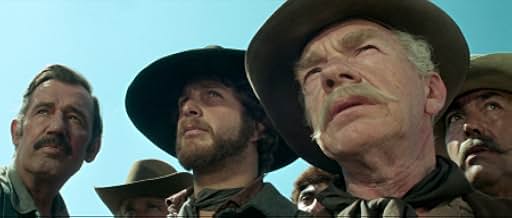One of the darker examples within the American Western canon, MACHO stars David Janssen as a half White, half Mexican drifter gulled into enlisting with the Confederate States Army in 1863 by a con man (Lee J. Cobb) and subsequently sentenced for desertion to a year's solitary confinement in a Texas stockade. Ticketed for a substantial budget, the film lost some funding but endures as an example of a work influenced by Sergio Leone and other directors of "Spaghetti Westerns", most apposite in the opening scenes depicting an attempted widescale breakout from the wretched stockade by largely hapless prisoners. Shot in northern Mexico's Guadiana Valley, the work chronicles Macho's eventual escape and reunion with his former partner in crime Juan (Pedro Armendariz, Jr.), his killing of a Confederate officer, and the pursuit of the outlaw pair by those hoping to benefit from a cash reward tendered by the slain officer's widow (Jean Seberg). The lowered budget proves not to be a major burden, although there are some embarrassments, notably a poorly edited scene wherein a charging black bear is obviously a man in an ursine costume, but very fine contributions from Gerry Fisher behind the camera and Ted Marshall's production and set designing more than balance the scales. A lack of continuity results from confusing moments when motivation for actions seems to be lacking, but here also strong performances from most of the cast offset this to a large extent, and director Bernard Kowalski properly focusses upon the relationship between the characters portrayed by Janssen and Seberg. A self-consciously moody affair, MACHO profits from ambiguity of motive in the performances of Janssen, Seberg, Almendariz and Bo Hopkins, with the efforts of all involved combining to create what well may be an anti-feminist classic, and one largely devoid of symbolic trappings.




































